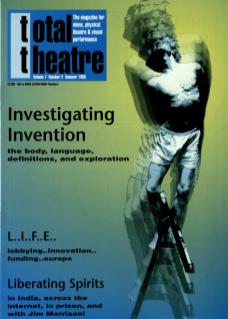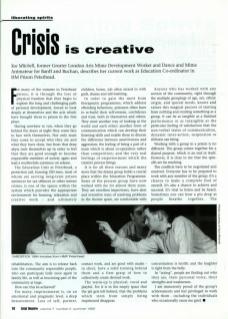For many of the inmates in Peterhead prison, it is through the loss of physical freedom that they begin to explore the long and challenging path of personal development, forced to look deeply at themselves and the acts which have brought them to prison in the first place.
Having nowhere to run, when they go behind the doors at night they come face to face with themselves. Not only must they come to accept who they are and what they have done, but from that deep abyss inch themselves up in order to feel that they are good enough to become responsible members of society again and lead a worthwhile existence on release.
The Education Unit at Peterhead, a protection jail, housing 220 men, most of whom are serving long-term prison sentences for sex offences or other serious crimes, is one of the spaces within the system which provides the appropriate environment for learning, relaxation and creative work – and ultimately rehabilitation. The aim is to release back into the community responsible people, who can participate fully once again in family life, as well as becoming part of the community at large.
How can this be achieved?
For many, imprisonment is, on an emotional and pragmatic level, a deep bereavement. Loss of self, partner, children, home, job often mixed in with guilt, shame and self-loathing.
In order to gain the most from therapeutic programmes, which address offending behaviour, prisoners often have to rebuild their self-esteem, confidence and trust, both in themselves and others. They need another way of looking at the world and each other; another form of communication which can develop their listening skills and enable them to discern the difference between assertiveness and aggression; the feeling of being a part of a team which is about cooperation rather than competition; and the very real feelings of empowerment which the creative process brings.
It is for all these reasons and many more that the drama group holds a crucial place within the Education Programme. Some of the present group have now worked with me for almost three years. They are excellent improvisers, have alert and inventive ways of resolving problems in the theatre space, are comfortable with contact work, and are good with masks – in short, have a solid training behind them and a firm grasp of how to collectively create devised work.
The warm-up is physical, vocal and playful. For it is in the empty space that the jail gets left behind, that the problems which stem from simply being imprisoned disappear.
Anyone who has worked with any section of the community, right through the multiple groupings of age, sex, ethnic origin, and special needs, knows and values this magical process of starting from nothing and creating something as a group. It can be as tangible as a finished performance or as intangible as the particular feeling of satisfaction that the non-verbal states of communication, dynamic interaction, suspension or stillness can bring.
Working with a group in a prison is no different. The group comes together for a shared purpose, which is an end in itself. However, it is clear to me that the spin-offs are far reaching
The conflicts have to be negotiated and resolved. Everyone has to be prepared to work with any member of the group. It's a chance to make a complete fool of oneself. It's also a chance to achieve and succeed. It's vital to listen and be heard. Sometimes you can hear a pin drop as people breathe together. The concentration is terrific and the laughter is right from the belly.
In ‘acting’, people are finding out who they are, their personal voice, their strengths and weaknesses.
I am immensely proud of the group's achievements and feel privileged to work with them – including the individuals who occasionally cause me grief.

